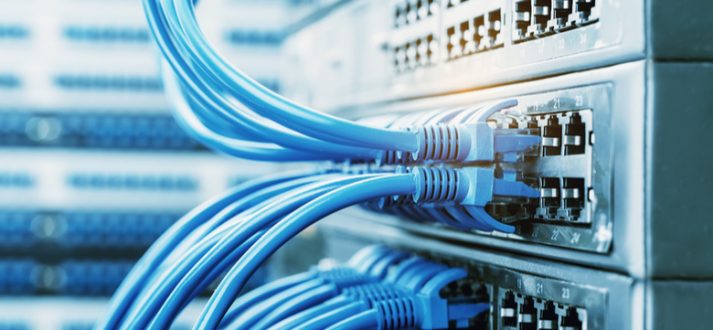Security has always been the priority of every personal and business computer system. No doubt, many are confident that their computer systems and networks are protected because of the ultimate work of reliable firewalls. When looking for a device similar to a server that can filter the traffic to a computer, it would be a hardware firewall. Hardware firewalls are physical devices connected to the firewall between the computer and the uplink.
What do hardware firewalls look like?
Hardware firewalls are like standard computers with different components, such as:
- processor
- memory
- sophisticated software
The device uses powerful networking components and forces all the traffic. It crosses the connection checked by the configurable rulesets, granting or denying access consequently. Every computer user has an experience of being blocked by a firewall.
Good internet citizens encounter firewalls at all times, usually in a software firewall. The firewall runs on a personal workstation or laptop, which has a modest function. It inspects traffic, entering and leaving the computer based on simple rules; it either allows or denies traffic. Hardware firewalls operate like software firewalls, except they live outside the server.
A hardware firewall works similarly except it is based outside of the server.
Advantages of hardware firewalls
Here is a list of advantages when you set up hardware firewalls:
- Traffic control
- Default rules
- Port access
- Managed equals controls
- Additional server resources

Where can you find hardware firewalls?
Hardware firewalls are set up differently, it depends on the existing configuration. It is placed outside the server and connected directly to the uplink. When it is a new set-up, a maintenance window will do the physical connection. When the connection to the server is set, all the traffic to and from the server passes to the firewall for inspection.
The inspection performs a granular control over the traffic you receive. The process is very important to keep your device safe and protected from vulnerabilities. A hardware firewall will work as a filter between the internet and the computer network. It can monitor data packets and determine whether they must be transferred or blocked during the transmission.
Firewalls as network protection
Hardware firewalls protect the whole network from incoming and outgoing traffic. It gives the network administrators control of the network used. Moreover, the hardware-based firewall protects the other network devices that don’t have firewalls.
Integration
The hardware firewall integrates with the other kinds of security. Besides, physical firewalls may come with supplementary security features, such as a virtual private network. Using the firewall with the VPN connection, you may have the security and control, which grants access to people needing secure access having a stable internet connection.
Although hardware firewalls are easy to manage, you don’t need to worry about updates and unexpected crashes, since they have built-in 24/7 protection. But, hardware firewalls require maintenance and monitoring. The hardware firewall can protect the whole network. There is no need to install it on every device separately, which can save a great amount of resources and time.


